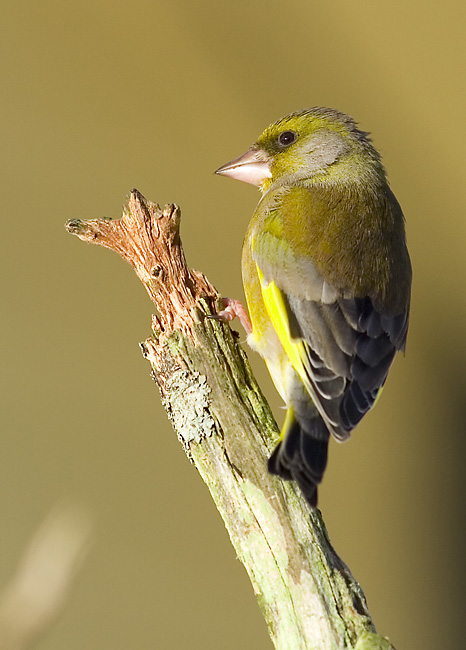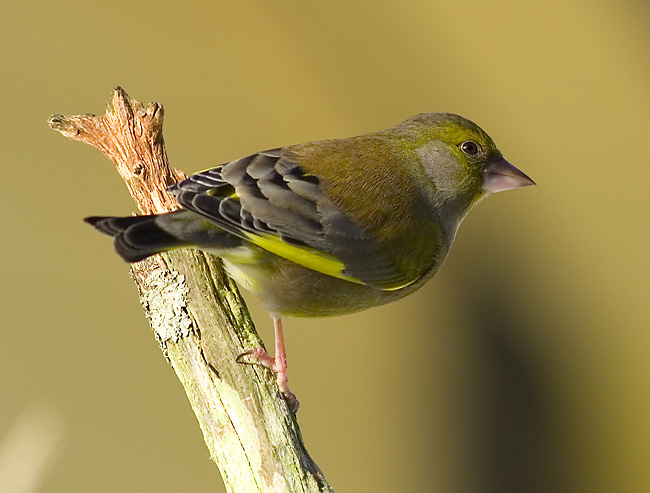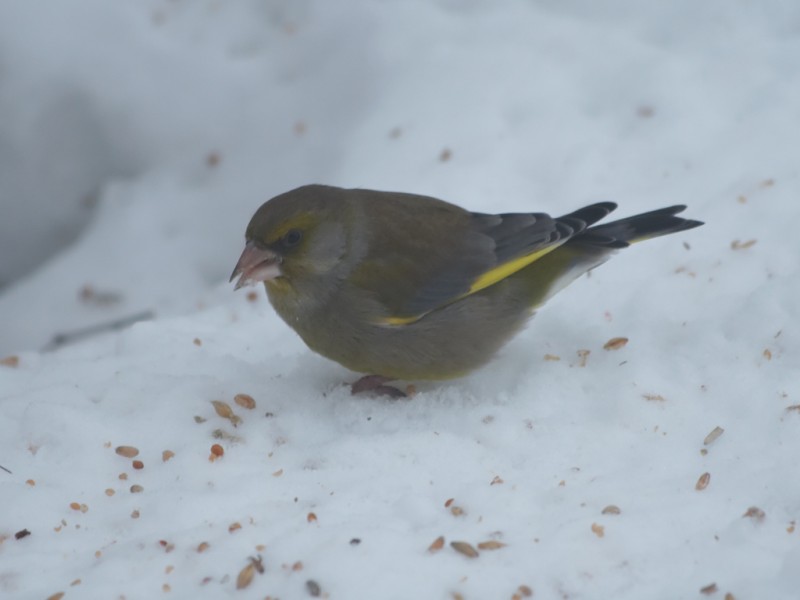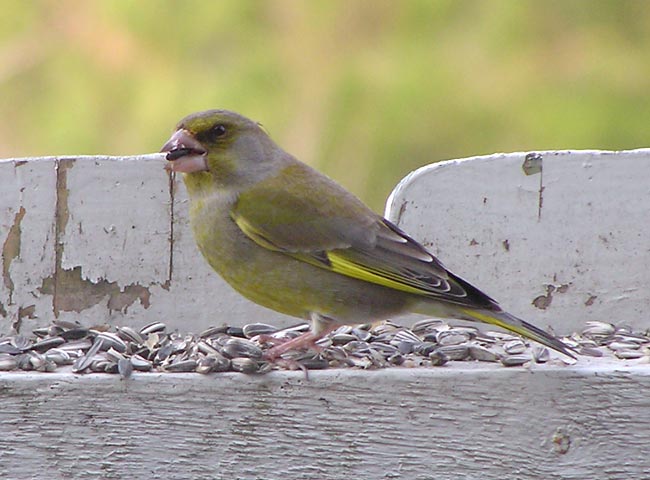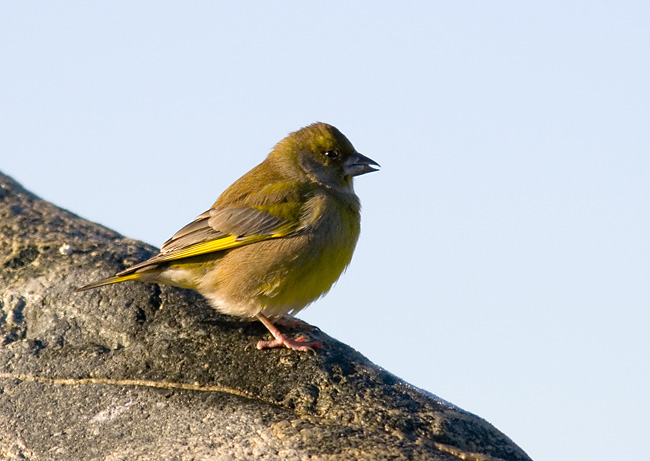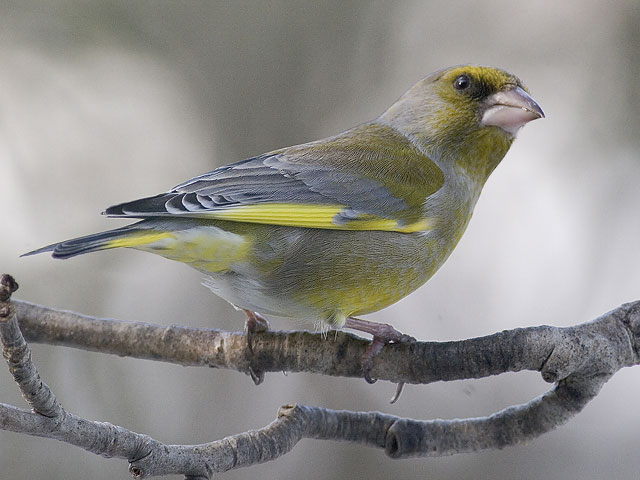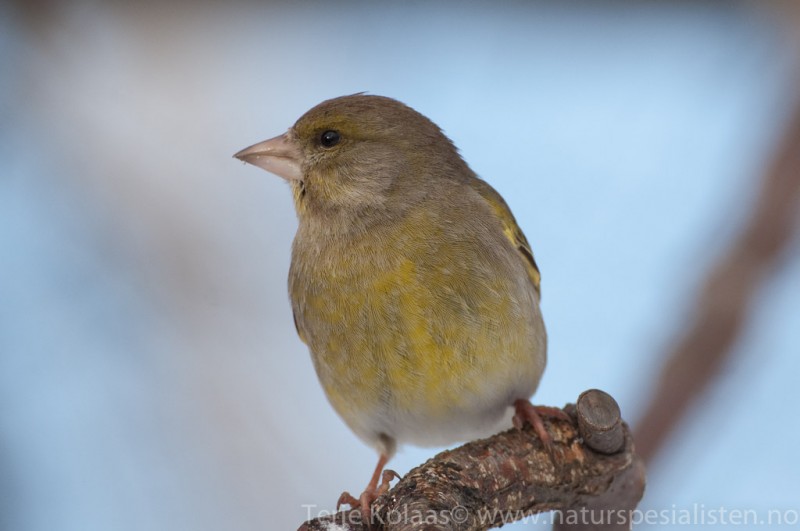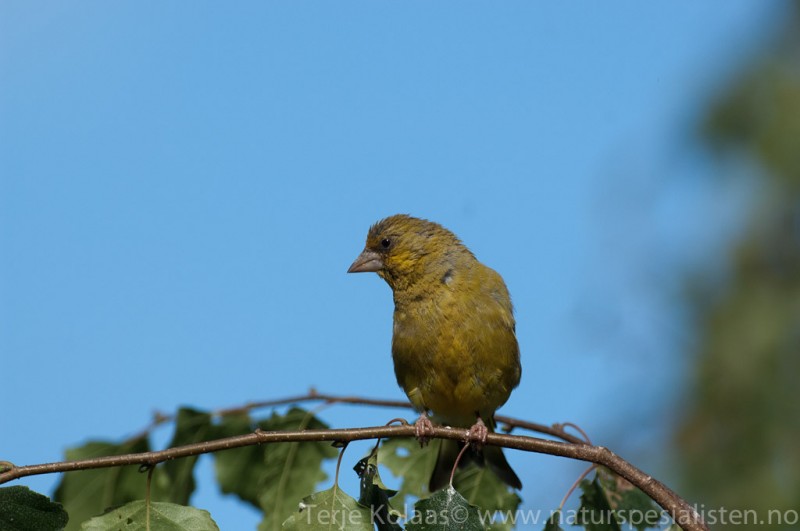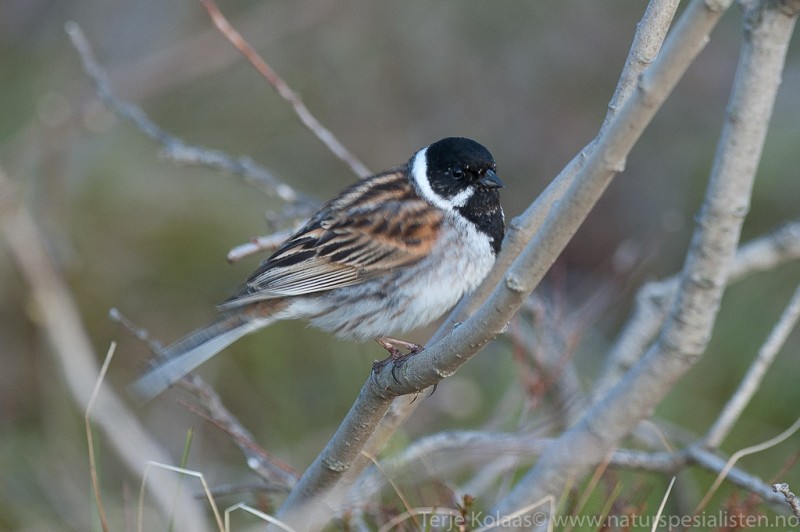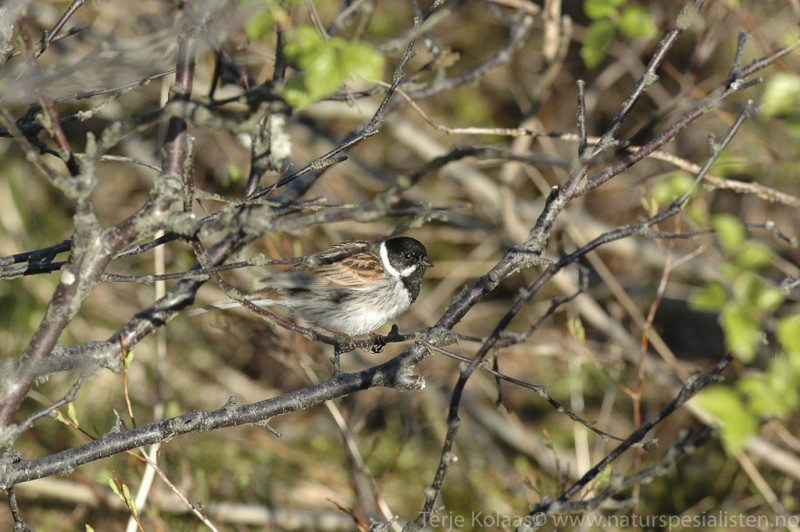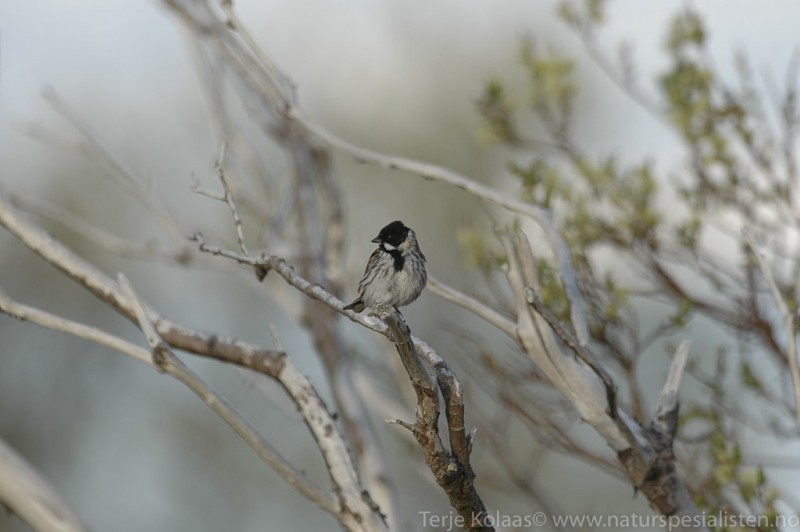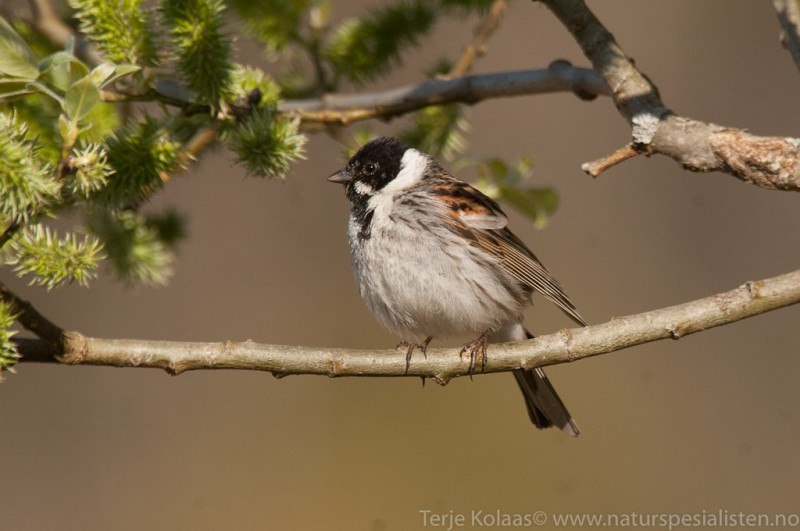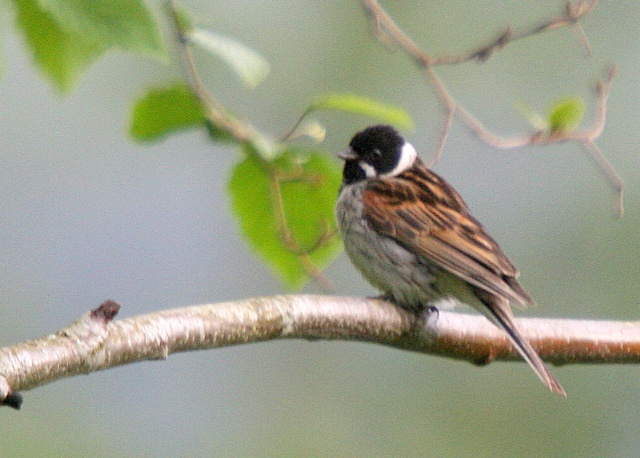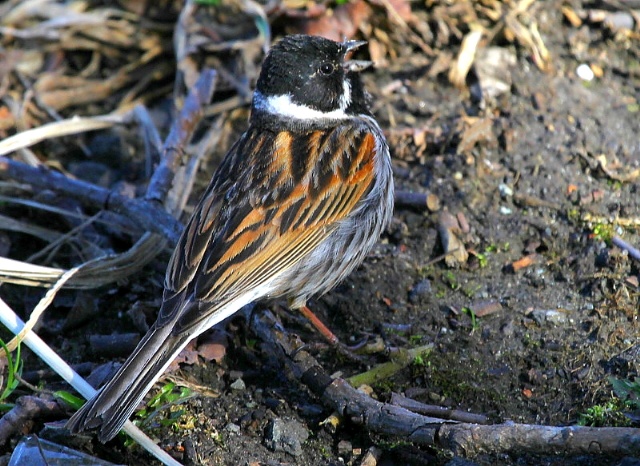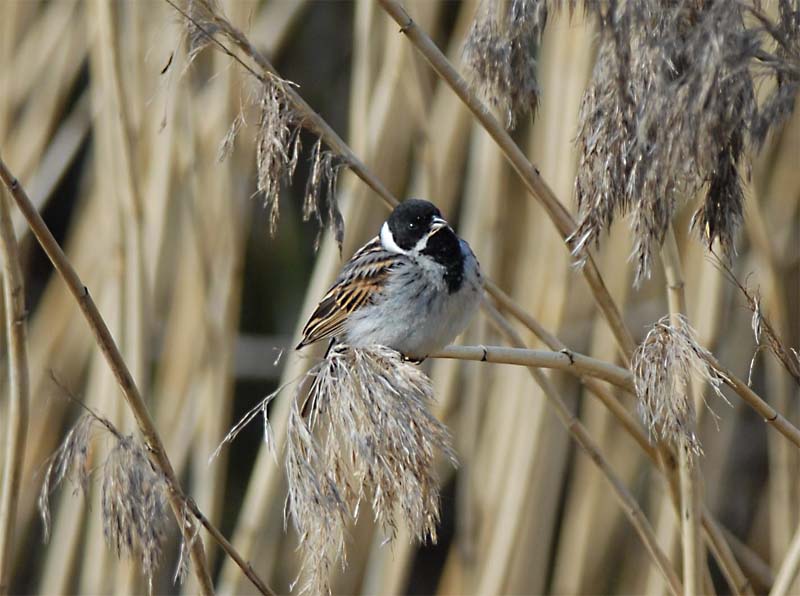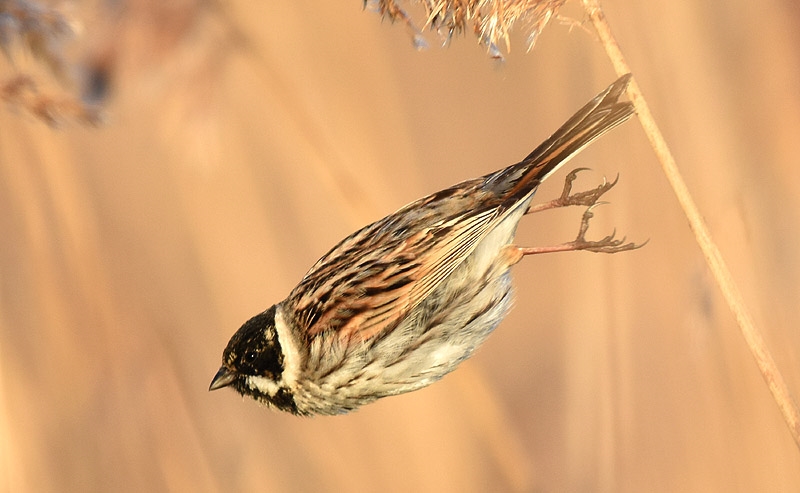Greenfinch (Chloris chloris)
Reed Bunting (Emberiza schoeniclus)
Plumage green, grey and yellow. Note bright, yellow base of primaries and sides of tail in all ages and plumages. Deep and heavy conical bill. Tail forked and quite short. Plump build. Female more grey than male, with back diffusely streaked in brown and underparts greyish. Juveniles similar to females, with even more drab colours and heavier streaking (also on underparts). Strongly undulated flight. Often appears somewhat clumsy when trying to perch on feeders etc.
Sound:Song composed of various sequences of linked sounds, repeated in a vibrating manner; "trrrrrrrrr", "chechechecheche". Sometimes resembles Brambling when making the wheezy "rrrrrrrrr" sound, but differs in being harsher and by "pulling" the pitch downwards (or sometimes upwards) at the end. Contact call a fairly resonant "chep-chep", resembling Redpoll, but less nasal and with a fuller tone. Also a sharp, drawn, ascending "kooeee", (perhaps not obviously recognized as a finch).
Song:
Distribution:
Xeno-canto: map
Ecology:Birdlife ecology
Links:
Observation.org Latest observations
Image search Flickr NB! May give other species
CCBreeding male easily recognized by all black head, prominent white moustache stripe and white collar. Rufous greater coverts in young birds. Females and juveniles otherwise plain and rather characterless, and are easily confused with other rare buntings. Reed bunting however, lacks the pale eye-ring and plain cheeks of Little Bunting, and the rufous rump of Rustic Bunting.
Sound:Song variable between individuals and breeding status: A short sequence of 3-5 brittle and buzzing sounds, repeated consistently with marked pauses. Last sound in phrase often has a conclusive feel, but not always. Paired males sing slower than unpaired. Unpaired male song also more contracted, making the pauses between each phrase stand out. Contact call a sharp, descending and drawn "tseeeoo". A bit similar to Yellow Wagtail, but not as sharp and explosive. In migration a thick, and unmusical "chong" is often heard.
Song:
Distribution:
Xeno-canto: map
Ecology:Birdlife ecology
Links:
Observation.org Latest observations
Image search Flickr NB! May give other species
CC
 English
English Albanian
Albanian
 Armenian
Armenian
 Bulgarian
Bulgarian
 Catalan
Catalan
 Croatian
Croatian
 Czech
Czech
 Danish
Danish
 Dutch
Dutch
 Finnish
Finnish
 French
French
 Georgian
Georgian
 German
German
 Greek
Greek
 Hungarian
Hungarian
 Italian
Italian
 Latvian
Latvian
 Lithuanian
Lithuanian
 Macedonian
Macedonian
 Norwegian
Norwegian
 Polish
Polish
 Portuguese
Portuguese
 Romanian
Romanian
 Russian
Russian
 Sami : Lule sami
Sami : Lule sami
 Sami : North sami
Sami : North sami
 Sami : South sami
Sami : South sami
 Scientific names
Scientific names
 Serbian
Serbian
 Spanish
Spanish
 Swedish
Swedish
 Ukrainian
Ukrainian

